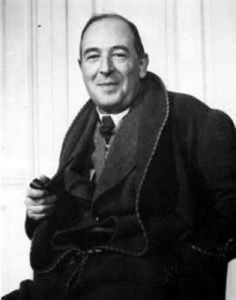“Every age has its own outlook,” C. S. Lewis instructed. “It is specially good at seeing certain truths and specially liable to make certain mistakes.” Amen to that. “We all, therefore,” he continued, “need the books that will correct the characteristic mistakes of our own period. And that means the old books.”

Was Lewis saying that only old books are worthwhile? Was he so anti-modern that he believed nothing written in the last century could conceivably offer us wisdom? After all, in his inaugural lecture at Cambridge, he famously referred to himself as a “dinosaur,” one of the last specimens of those who live comfortably in their native land of previous epochs.
That’s hardly his intention. What he was doing in this quote was attacking the oh-so-modern fallacy (found in every age, by the way) that we have progressed so far that we understand things much better than previous ages and generations.
I teach historiography. Part of the course delves into different schools of historical interpretation. One common mistake for historians is to believe that progress is inevitable, that each succeeding generation is wiser than the last one.
I ran into this perspective in my doctoral program. One book used in a course on American colonial history was infused with a sneeringly condescending attitude toward those so-called primitive early Americans. They were just so backward, the book implied. Not like the new generation that has come so far.
Of course, in the view of that author, to “come so far” meant that we have set aside all those outmoded ideas about God that seemed to drive many of the early settlers. The hubris in the book was astounding.
 All Lewis was saying in this quote is that each era has its truth emphases and each also has its own characteristic mistakes and/or falsehoods that it believes. How do we guard against this arrogance? Return to the thoughts and beliefs of earlier times and keep in mind that whatever faults they had, they also might have contained truths that we, in our pride, have foolishly abandoned.
All Lewis was saying in this quote is that each era has its truth emphases and each also has its own characteristic mistakes and/or falsehoods that it believes. How do we guard against this arrogance? Return to the thoughts and beliefs of earlier times and keep in mind that whatever faults they had, they also might have contained truths that we, in our pride, have foolishly abandoned.
The “old books” are not error-free, but they do put a check on our runaway love affair with ourselves. They remind us of things we may have forgotten as a society.
There is one old book, though, that is error-free and never leads us astray. If we take it seriously, our pride is leveled and we recognize our true place in the universe.
As I survey the mess our current society has devolved into, I’m reminded of another Lewis quote: “Moral collapse follows upon spiritual collapse.” If we are disturbed by what we see happening morally in our day, we must acknowledge the real reason for this development. We have allowed our Christianity to be compromised to the point that it no longer is the salt and light it was intended to be.
We must return to the one Old Book that puts things right again.
